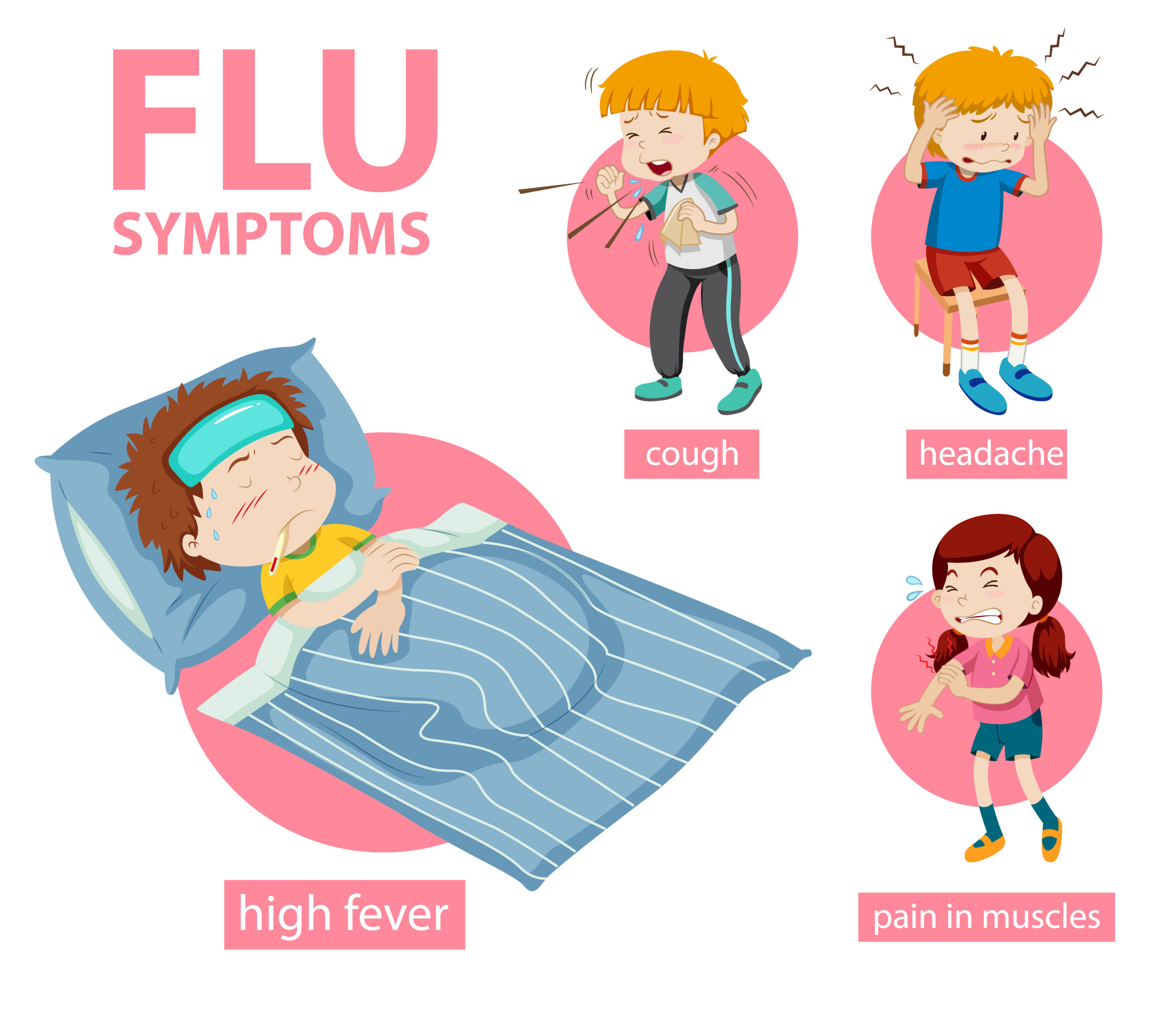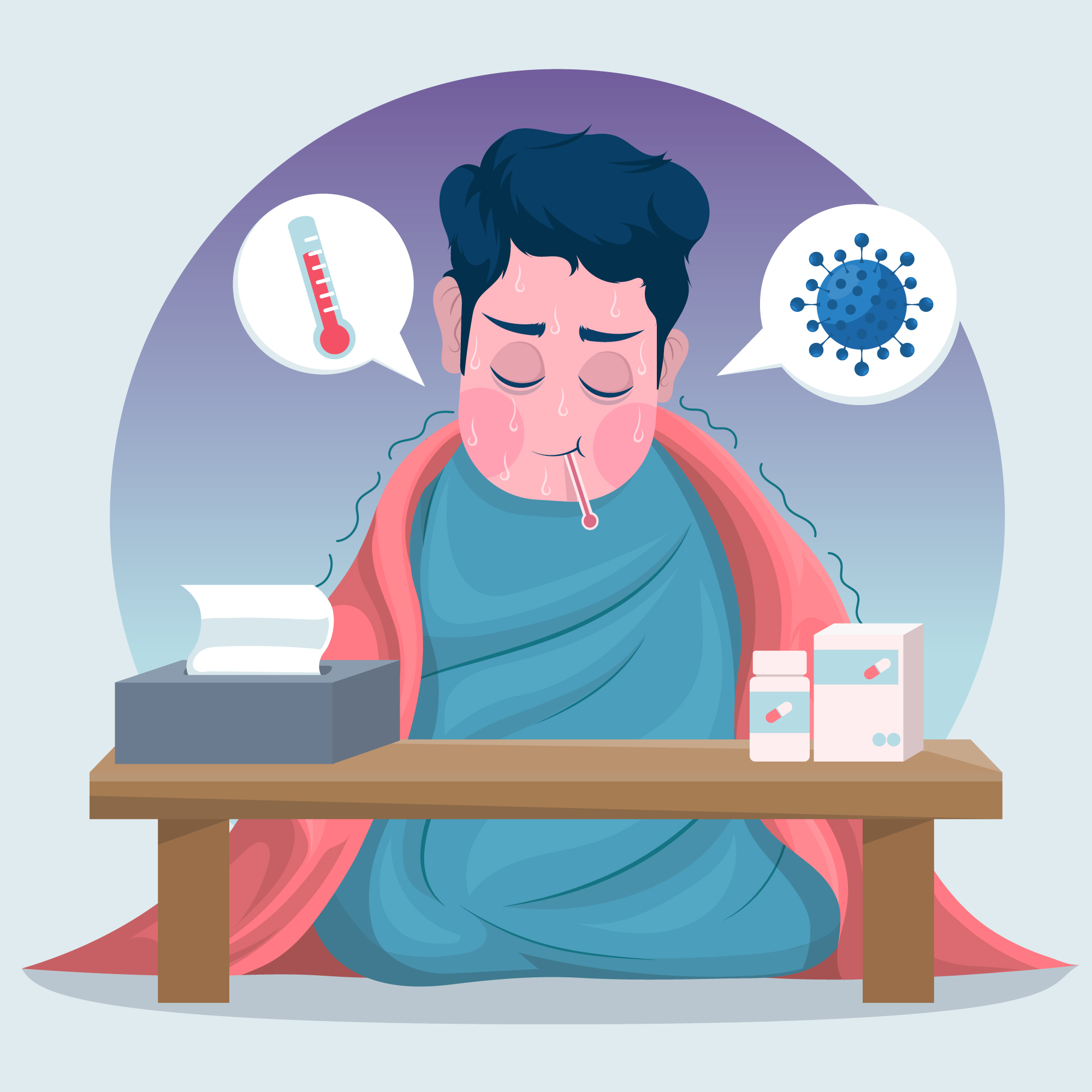Insight Urgent Care & Occupational Medicine – Cold and flu season is here. Over the course of a year, mostly between September and May, the average adult will experience two to four colds. For children, that number increases to between six and eight colds a year. Although most cold and flu symptoms, such as a runny nose, cough, and congestion, are generally mild and treatable at home with rest, fluids, and over-the-counter medications, there are some instances where it is a good idea to get checked out by a doctor. If you find yourself under the weather this season, here are eight signs it’s time to see your primary care physician or an urgent care provider.
Persistent Fever
Fever is a common flu symptom and a normal part of the immune system’s response to a virus. However, when a fever is persistent (lasting more than two days) or continues to worsen with rest and over-the-counter medication, you should consider seeing a healthcare provider. As a general rule, adults should contact a healthcare provider for fevers of 103℉ or higher that last longer than two days. Children should visit a healthcare provider for fevers of 102.2℉ that last longer than 24 hours.

Difficulty Breathing
Congestion from a cold or flu can make breathing harder, but it is usually not severe enough to require medical attention. However, if your breathing is rapid or labored, you experience persistent chest pain, or you notice your lips and skin turning a bluish shade, you should seek immediate medical attention.

Severe Headache
Minor headaches are a common cold and flu symptom that generally resolve on their own. But if your headache does not improve with rest and over-the-counter medications, worsens after 24 hours, and is accompanied by nausea, vomiting, sensitivity to light, and eye pain, it could be a sign of something more severe and should be treated by a doctor.
Painful Swallowing
In both colds and flu, a sore throat is common and should go away on its own after a few days. However, if a sore throat makes it painful to swallow, eat, or drink, makes it difficult to breathe, and is accompanied by a fever or rash, it could be a sign of strep throat or another infection that must be diagnosed and treated by a doctor.

Lingering Congestion & Cough
When congestion and cough do not improve after about one week, it could be a sign of something more serious, such as acute bronchitis (chest cold), pneumonia, or sinusitis. Experiencing signs of improvement, only to develop flu-like symptoms again, is also a sign of a secondary infection such as bacterial pneumonia.
Confusion, Dizziness, or Weakness
If you are experiencing difficulty thinking clearly, are unable to sit upright or stand without becoming lightheaded, or are very weak, it could be a sign of something serious, such as inflammation, low oxygen levels, or dehydration. If these symptoms do not improve or get worse after a few days, it is advisable to see a healthcare provider.
Unable to Keep Food or Fluids Down
Persistent or severe vomiting, with or without diarrhea, that lasts more than 24 hours should be treated by a healthcare professional. The body requires plenty of fluids to recover from colds and flu. Inability to keep foods and fluids down can lead to dehydration and the need for an IV drip to give your body the fluids it needs.
Chronic Health Conditions
People with chronic health conditions, including asthma, diabetes, heart disease, neurological disorders, and weakened immune systems, are at risk of severe complications and even death from influenza. If you are in a high-risk group and are experiencing symptoms such as body aches, congestion, cough, fever, and fatigue, symptoms can progress quickly in as little as a few hours.

Most cold and flu symptoms can be managed at home with rest, fluids, and over-the-counter medications. However, if you are experiencing any of the above symptoms or if you are unsure about the severity of your symptoms, it is always better to seek medical advice sooner rather than later. To learn more about our services at Insight Urgent Care and Occupational Medicine, contact us or visit us at Insight’s Flint Campus daily from 8:00am to 8:00pm.
FAQ
Q: What is the difference between a cold and the flu?
A: Colds and the flu share many similarities, including being respiratory illnesses caused by viruses. However, there are some distinctions between the two. Colds are typically caused by rhinovirus and are milder with symptoms including a runny or stuffy nose, sneezing, coughing, and sore throat. Flu is caused by influenza viruses and is generally more intense with additional symptoms like fever, muscle aches, and fatigue.
Q: Are over-the-counter medications effective in treating a cold or flu?
A: Over-the-counter medications can be effective in relieving cold and flu symptoms. Some common OTC medications that may help manage symptoms include pain relievers and fever reducers (e.g. Tylenol, Motrin), cough suppressants (e.g. Robitussin), decongestants (e.g. Sudafed), and menthol throat lozenges or sprays.
Q: How long should I miss work or school for a cold?
A: The duration for how long you should miss work or school for a cold depends on the severity of your symptoms and how you are feeling. Cold symptoms generally peak around the second or third day and then gradually improve. Flu symptoms will last closer to a week. It is important to listen to your body, follow workplace or school guidelines, and consult with a healthcare professional if you are unsure.

